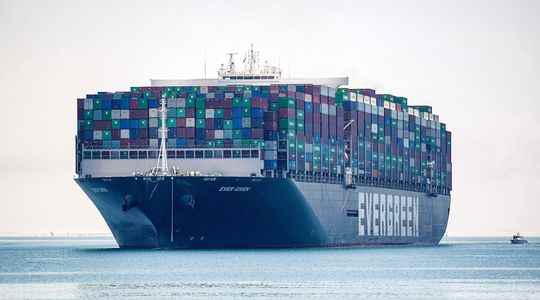It is a high and symbolic bar that France passed last March, that of 100 billion euros of trade deficit over one year, consequences of the drastic increase in the price of energy and a policy lasting deindustrialization. But far from being defeatist, the managing director of Business France, Christophe Lecourtier, insists on the vitality of French exports and the return of foreign investment to our territory.
L’Express: How do you analyze France’s abysmal trade deficit?
Christophe Lecourtier: Structural reasons mingle with short-term explanations. Industry today represents only 10% of the GDP of France, which is the country with the most subsidiaries abroad. Take the example of the automobile, France is in deficit there, we import more parts than we create. However, thirty years ago, this sector constituted a surplus.
But it is the global economic situation that best explains this increase in the trade deficit. In the first quarter, the energy bill amounted to nearly 4 billion euros, likewise we pay the sharp increase in the price of raw materials. Once this balance sheet has been drawn up, we must not forget that we are talking about a scale, and that we must therefore look at the two levels, import and export. However, on the export side, we are doing quite well.
Are French exports doing well?
Yes, the level is excellent in 2021, higher than that of 2019, which was already a very good year. France gained 7,000 exporters. And in the first quarter of 2022, we see export growth of 5.3%. “Made in France” is still fashionable in certain sectors, in particular that of wines and spirits, cosmetics and, of course, aeronautics. Even if this specialization can suffer from economic conditions, like Airbus suffering from the global Covid-19 crisis, offering products from “premium” ranges is the best asset. Our concern is that in many industrial fields we manufacture in the “medium” range, which is moreover at high prices.
Why did France set aside its industrial strength?
Many companies have relocated because they did not find the conditions favorable enough for their proper development. But in recent years, government measures make France more attractive. Not only for domestic enterprises, but also for foreign investment. Since 2017, these have increased by 50%, which tends to prove that France is a sleeping beauty that has awakened. In addition, these foreign investments are made in the industrial areas that we want to boost: health, agri-food, energy transition…
What is the situation with our European neighbours?
Everyone suffered the rise energy prices. The European Union’s trade balance even fell into the red when it had a surplus of 10 billion euros in May last year. Even countries like Germany and Italy, with still excellent trade balances, have seen their balance shrink. The moment is difficult for everyone, not specifically for France.
The optimism of a rebound seems appropriate at Business France?
It is important to draw up conclusions, but the main thing is to act. Our role is to try to get industrial companies to come or come back to France. The year 2021 tends to prove to us that we are on the right track. For example, the two foreign countries that have invested the most in our territory are Germany and the United States, demanding partners who are committed to healthy environments. The world is turbulent and can undermine efforts, but the political plans of “France Relance” and “France 2030” are encouraging for the future. Our deindustrialization constitutes a deep evil, but it is treated.
